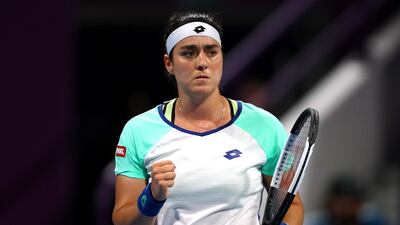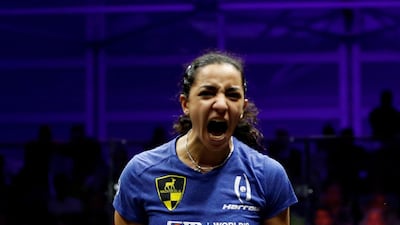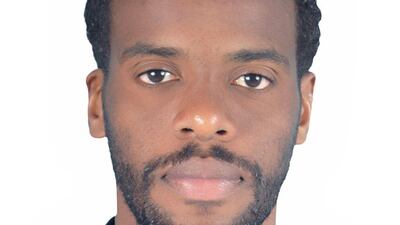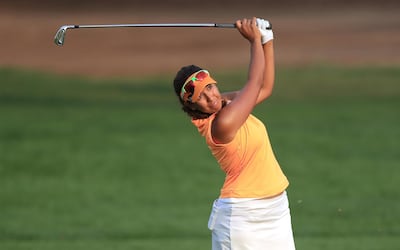As the world unravels due to the fast-spreading coronavirus, professional athletes find themselves at a standstill, faced with uncertainty that has swept the globe.
While all agree that what is happening is bigger than sport, the fact remains that the hiatus enforced on leagues, tours, and tournaments, is a legitimate cause for concern for many people working in the industry, not least of all the athletes.
Many of the Arab world's top sportsmen and women are dealing with this sudden interruption that has forced them to either rush home, or remain stranded in the country they were last competing in before the situation escalated.
Contrary to what social media might suggest, kicking a toilet roll on camera and performing dances on TikTok are not the only things occupying an athlete’s mind.
Tunisian tennis player Ons Jabeur, ranked 39 in the world, was in the California desert ready to play the Indian Wells tournament before it was called off just a day before the start.
Jabeur flew to Miami, where another cancelled tournament was meant to take place. Amid the chaos and the rapidly changing global landscape, the 25-year-old North African opted to stay in Miami with her coach Othmane Garma and his family.
She felt she had a better chance of practicing in Miami compared to Tunisia, but that was before it became clear that staying home was recommended everywhere, and before the WTA tour announced the cancellation of all tournaments until June 8.
She stopped going to the tennis courts and is instead doing what everyone else is doing: working out and staying put.
“I’m really worried. I don’t want to stay so long here in Miami, it’s kind of difficult. I’m not sure if I could go back to my country now,” Jabeur said.
Skipping
Her compatriot Malek Jaziri was in Brazil for a Challenger tennis tournament when everything was called off. He hopped on a plane to Tunis, where he has spent the last 14 days in self-quarantine with his coach Fares Zaier so as not to risk the safety of his wife and son.
“I saw them from afar. It’s really hard to see your mother, or your wife and your kid from afar. He wants to come to me and I can’t hold him,” said Jaziri, who spends his days working out in a 7m-long balcony, doing intervals and skipping rope.
The 36-year-old Jaziri, who was No 42 in the world just over a year ago, has slipped in the rankings and was just starting to feel good again on the court when everything came to a halt. Players like him, who are ranked outside the top 200, are taking a serious financial hit right now. Jaziri says he is still paying his coaches’ salaries, and has no idea when he’ll be earning again.
“Right now, humanity is more than anything else, tennis is not a priority,” he assures.
This degree of uncertainty is difficult on everyone, but especially elite athletes, who usually plan their entire calendar well in advance. They meticulously set goals, and cater training towards them. So it’s understandable when they say they are thrown off by what is happening.
Squash world No 1 Raneem El Welily of Egypt says she doesn’t feel any sense of urgency to practice because the PSA cancelled all events until at least the end of April.
“I understand the situation, but mentally I still feel something is off. I don’t understand, am I on a break, or am I on holiday? There is no practice, but should I practice? There are no tournaments, so what am I practicing for? Mentally I’m a bit confused,” she admits.
The situation gets even more confusing for athletes trying to qualify for the Olympics. The IOC said on Sunday that a decision will be made regarding Tokyo 2020 within four weeks.
Postponement is on the table, but cancellation is not. Vague statements were made regarding qualifying, which means none of the athletes know if they’ll actually get the chance to compete in a qualifying event before the Games, if and when they take place.
UAE middle-distance runner Saud Al Zaabi, who competed in the Rio Olympics in 2016 courtesy of a wildcard, is keen on clocking a qualifying time before Tokyo, but the two races he was planning in Spain this May might no longer be staged.
Hiatus
Moroccan golfer Maha Haddioui is in the same boat. Recent top-12 finishes in South Africa and Australia have boosted Haddioui to the edge of the cut-off for Olympics qualifying.
The 31-year-old, who made it to Rio in 2016, is unsure whether she’ll be given the opportunity to secure qualification, now that the Ladies European Tour is put on hold.
“Qualifying tournaments stop in June so we don’t really know what they’re going to do. It’s a big question mark and I think that’s the hardest thing to deal with,” she explains.
Haddioui says this will be the longest period for her not to play golf since she started at the age of 12, and she is torn between staying in, and hitting the course to hone her skills during this hiatus.
Perspective is key for everyone, and it’s times like these that athletes can rely on some of the clichés they’ve been receiving from their coaches throughout their careers.
They’ve been taught to only focus on “controlling the controllables” – as Jabeur points out – and taking things “one day at a time”.







